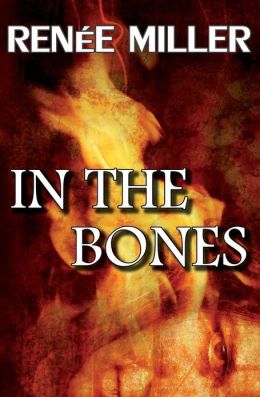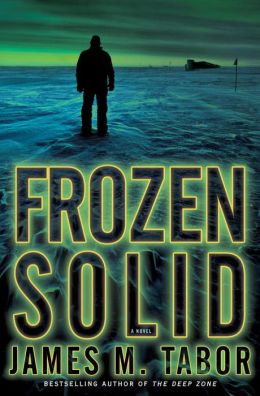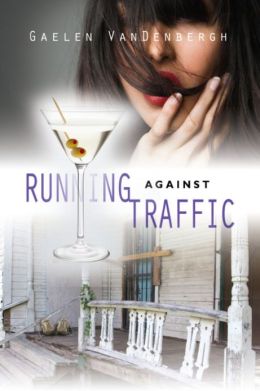"
The Game" by Shane Scollins is brilliantly suspenseful! I love a good psychological thriller that I can loose myself in, and Scollins gave me just that experience with The Game. Five Stars!!
"She turned to face him. 'He's right, I can't let them die. And you don't
want me to let Alexis die either. I have to do this. I have to see if I can save
them. Let me at least hear him out and find out what the hell all this is. If I don't
like it, we can walk away.' She turned to face Angus again. 'I'm in.'
He smiled and folded his hands. 'Well, let the games begin.'"
When I read the synopsis, I expected a certain level of suspense, but didn't really know what to expect. Where so many other books within this genre fall short, The Game shines. With each murder or kidnaping, Scollins presents them in a twisted, yet tasteful manner. Because he stays away from grotesque scenes, he draws you in as you try to figure out the twisted mind acting as puppeteer in the story.
No matter where you are, they’ll find you, and put you in “The GAME”.
Candice Laguna’s life is being systematically dismantled, by an unknown force, for a reason she can’t imagine. But she is about to become the unwilling star of a reality game competition the likes of which has never been broadcast to the world.
Just when things get darkest, a mysterious man snatches her from the grips of doom. He is a man who is not what he appears, and not who he says. He has no name and his motivation to help Candice is not what it seems to be.
THE GAME is a mystery/thriller with an unpredictable paranormal twist. It has action and adventure and plays up the everyday exploitation of reality television obsession gone wrong.
From the Shane Scollins:
AUTHORS THAT HAVE INSPIRED YOU
I was not a good student. I hated school and took the easy
road whenever possible. When I was in high school, I took a creative writing
class. I did this because I knew it would be easy. Teachers had been telling me
I was a good writer since as far back as I can remember. It was not something I
learned but something I already had in me, so I used it whenever possible to
breeze through assignments and classes. It worked a lot, except in math.
We got the assignment to write something based on a true
story. I felt like having fun with my teacher so I wrote something twisted and
spooky, far from reality, hoping to freak her out. The reaction was not what I expect.
She liked it. In fact, she loved it. She started going over all the details
with me and asking me what inspired it, acting like a fan and not a teacher. Then
she said something odd, she said I reminded her of a young Dean Koontz. I said,
“Who the heck is Dean Koontz?”
The next day she brought in a book by Dean Koontz. She’d just
finished it and I thought I’d like it. Now, I must confess, I was not a big
reader. I had pretty much scammed my way through book reports my entire school
career, making up the details without ever reading a book. Unbelievably I got
by.
I had tried to read many book by very famous writers. But I
would usually get bored about a quarter of the way through. I found them too
bogged with details or hopelessly predictable. I expected this book by Mr.
Koontz to be the same. I could not have been more wrong. Right away Koontz had
my attention and enough twists and turns that even I could not predict where it
was going.
A couple of years after high school, my mother put another
Koontz book in my stocking for Christmas. It made me think back to what that
teacher said. If there was something in my writing that reminded a creative
writing teacher of someone famous, perhaps I was meant to be a writer. I read
that book, and then another two Koontz novels, and that touched off a reading
frenzy. I kept reading everything I could like a madman. Every author and genre
you could imagine. But I always ended up coming back to Koontz.
So although many authors have inspired me along the way, it
was without a doubt Dean Koontz that excited me enough to want to be a writer. I
wanted to take readers on unexpected and twisted journeys, and that is what I
try to do every time.
WHAT INSPIRES YOUR WRITING?
My writing inspiration comes from everywhere. And there are
different types of inspiration that come from different places.
It starts with the people in my life. My wife inspires me
every day by supporting my writing career. She’s an amazingly strong and
beautiful woman who tends to inspire everyone around her. I’m blessed to have
her to draw from to create the strong intelligent female characters I choose.
My diverse and thoroughly original group of friends and
family inspire me, they are an endless well of character traits that I can mix
and match. My friends from social media on Twitter, Facebook, Goodreads and
Fitocracy all inspire me in different ways. They push me to be a better person
and writer.
Working with the amazing people at Limitless Publishing
inspires me. From the moment we started working together it’s been
inspirational and motivating and they push me to work hard and pour myself into
every project.
The world around us inspires me every day. The love, the
hate, and amazing gifts of humanity and the horrible things we do to each
other. They all inspire me. Our world is a virtual plethora of untapped ideas
and inspirations everywhere I look.
We live in amazing times, scary times and spiritual times.
I’m inspired as much by the evil of this world as I am by the selflessness we
see every day. The wonders of the Universe that science cannot explain inspire
me as much as the mundane and common things we take for granted each day.
I’m naturally inquisitive, I have a desire to look into the
past and into the future and wonder where we’ve been and where we are going as
a society. I’m inspired to examine the human condition and our complex
sociological development.
In simple terms, I’m inspired by one word: Why?
The word why, might be the most powerful word in our
language. It’s the word that has driven great minds like Tesla and da Vinci and
Einstein to push the limits of human understanding and break the barriers that
bind us. I try to do that same thing, but with fiction, which makes the
possibilities limitless.
WHY BOOK COVERS ARE
TO IMPORTANT
Book covers are a vitally important part of your book. They
are the first thing readers will see. They are the first impression of your
work. And as much as we want to believe in that old saying that you can’t judge
a book by its cover, we simply know from a marketing standpoint, that’s not
even close to true.
The craziest part is that in this new publishing landscape
book covers are even more important. The cover has never been more critical than
it is right now. There are more books available and a greater need to
distinguish yours from the pack.
Self-publishing and eReaders have put more choices in front
of readers than there has ever been before. And at the same time readers are
devouring books at a rate they never have. Setting your book apart from the
pack is not easy, and at this stage, at the very least, you need to have a
cover that will get that second look. It needs to be clean and professional.
Unless your name is King, Koontz, Patterson, Stewart or
Roberts, your story is going to need a great cover. Those few big names can
just put their name on the cover, some swirly sky colors next to a tree, and
end up selling the lights out. Unfortunately, that won’t work for most of us.
The rest of us need a great cover that evokes the emotion of
the shopper. Because lets face it, no matter how great the writing is, if the
cover is horrible, no one is going to know it.
I have seen firsthand the difference a great cover can make.
My publisher, Limitless Publishing, is putting out some of the best book covers
on the market, period. And the cover is the window into your book. If people
don’t want to look thorough the window, it won’t matter how cool the view
inside is.
HOW TO AVOID REJECTION BLUES
There are two kinds of writers, those who have been
rejected, and those who will be rejected.
Everyone knows that being a writer, means being a rejected
writer. It’s going to happen, don’t even bother to fool yourself into thinking
otherwise. Even the best of the best have been rejected. But the one thing the
great writers all have in common is their ability to deal with that rejection
and turn it into something positive.
The rejection blues are inevitable, but they are not
productive. You will accomplish nothing by feeling sorry for yourself in any
aspect of life, and if you want to be a published author, you can’t let the
rejection blues get you down or knock you off the path you’re supposed to be
on.
Some authors have been rejected countless times by during
their careers. My first real foray into the query process resulted in 100-plus
agent and publisher rejections. I knew I had a solid story, and a good query.
But it just didn’t hook anyone in. I was told over and over that it was just
not what anyone was looking for.
It would have been easy to give up. In fact, a lot of
writers do give up at that point because the rejection blues are just too hard
to deal with. They let the gatekeepers ruin their ambitions because no one
likes rejection. No matter what your doing in the arts, rejection is going to
pop up like a Jack-in-the-Box and knock the confidence right out of you.
The best thing to do is kept submitting, and writing. Move on
to the next book agent and the next book. I think that’s the best way to avoid
the rejection blues. Rejection is coming, so we all have to deal with it. If
you just go about your job, and keep pushing forward there will be no time to let
it get you down.
Take that rejection and spill it into your writing. Whatever
emotion that rejection stimulates in your soul, will make for great emotion in
your work. Great writers are masters at harnessing emotions and spilling them
onto the page. All the times we’ve loved, all the times we’ve hated, everything
we’ve felt will someday come out in our work. Those of us that can keep blasting
through the roadblocks and shaking off the debris will eventually prevail.
HOW TO SELL YOUR
FIRST NOVEL
I know there are a lot of writers out there looking to make
that first sale. I was one of them not that long ago. I sent my very first
query out, in 2002. But what I quickly realized was that I was not ready to be
published. I was a good writer with a lot of good ideas, but I was not even
close to where I needed to be in order to sell that first book.
My writing needed a lot of work, so I got to work. I spent
the next several years working as a sports writer and web designer, and on the
side wrote four books, they averaged about 70,000 words. I spent time making
them the best they could be, and then when I was done…I promptly threw them all
into the trash.
I know, I’ve heard the stories, some people write a first
draft and send one query and boom, they are a published author. Next thing they
know they’ve sold a million copies and end up in negotiations for a Hollywood blockbuster. I’ve seen it happen to people, and
for most of us that is a maddening concept. But that’s the way it goes
sometimes. Most of us can’t expect that. So hard work and persistence are the
only weapons we have.
Once your writing is where it needs to be, and you’ve penned
a great novel, you need to learn how to write a query. Writing a query is a
science. It’s something even the best writers can struggle with. You need to
research how to write a great query, and that can be a fulltime job. There is a
ton of advice out there and it can be a convoluted subject to research. But
there is a basic form you will need to learn and follow.
After you’ve written that killer query, tailored to that
agent or publisher, send it along and move on to the next target. Don’t stop,
consistency here is as important as consistency in writing. You have to keep
working, keep writing and keep up with the submissions. The key is really just
persistence and hard work. Take your writing seriously. Treat it like a career
and not just a hobby even if it’s only part time. As they say, if you believe
you can achieve.











